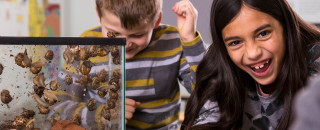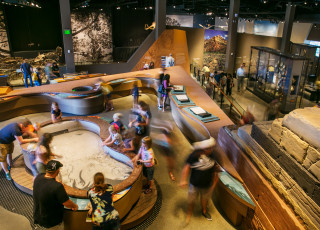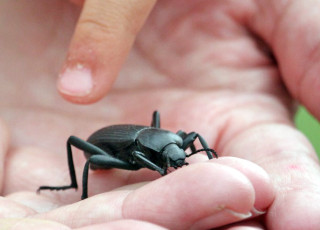Tips for Nurturing Young Scientists (and Emotionally Strong Kids)
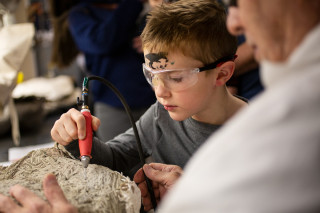
By Carla Frein
What if your child’s fascination with dinosaurs, rocks, or bugs was a window into their emotions and an opportunity to support their mental health?
Young children are natural explorers, and their curiosity is one of the most important tools they have for learning and growing. So, it’s only natural that science learning can support a child’s emotional wellbeing.
Curiosity Is the Starting Point for Everything
If you’ve ever watched a toddler poke a rock with a stick or ask a million “why?” questions in a row, you already know: children are wired for exploration.
But that curiosity doesn’t just build knowledge, it builds something deeper: confidence, persistence, and emotional skills.
When a child investigates something new, they’re practicing:
- Problem-solving ("How does this work?")
- Managing frustration ("It didn’t go how I thought, now what?")
- Communication ("Can I tell you what I see?")
- Connection ("Are you here with me as I learn?")
When cultivated thoughtfully, these skills form the foundation of children’s mental health. And they develop best in environments where children feel safe, supported, and free to explore at their own pace.
Science Learning Is Emotional Learning
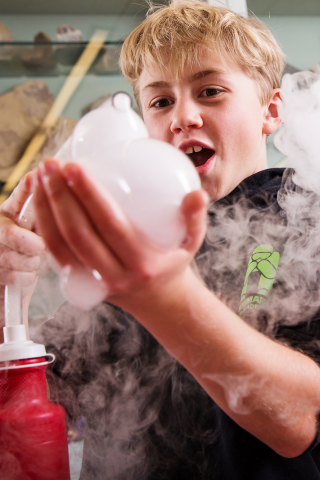
At the National History Museum of Utah, we see science learning as building a relationship with the world.
Mental health and science education may seem like different fields, but they share a similar belief: development happens through relationships and experiences.
“When a child explores a new environment with a caring adult by their side, it strengthens their sense of safety and connection. These shared moments are powerful opportunities to support emotional development. And when questions turn into a conversation, it builds connection,” explained Kimberli Berrett, Assistant Clinical Director for Outpatient Services at The Children’s Center Utah.
A museum visit, a nature walk, or even a simple “why?” conversation can offer moments that support both scientific thinking and emotional growth.
Caregivers can help children by:
- Being present: Your attention is what makes the experience meaningful.
- Following children’s lead: What are they curious about? Start there.
- Validating feelings: Exploration sometimes brings big emotions, wonder, fear, excitement, and frustration. That’s okay. You can name and experience those feelings together.
Next time you visit the Natural History Museum of Utah try these simple ideas:
- Use open-ended questions: “What do you notice?” or “What do you think will happen next?”
- Pause for wonder: Take time to look at the exhibits – a dinosaur, a rock, or a cool bug – together.
- Acknowledge that mistakes are part of learning: Show that it’s okay to get things wrong or not knowing the answer, that’s how we learn!
- Talk about feelings during exploration: “That was surprising!” or “You look proud of your tower.”
“Our hands-on exhibits are designed to spark curiosity and encourage children to ask questions, make connections, and feel the joy of discovery,” explained Dr. Jason Cryan, the Sarah B. George Executive Director of NHMU, “Some of the most important things we can do to promote mental and emotional wellbeing in children is to encourage their innate curiosity, give them the opportunity to explore nature, and validate their discoveries.”
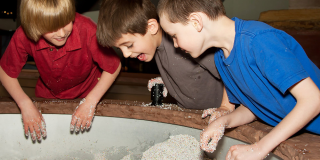
About The Children’s Center Utah
Since 1962, The Children’s Center Utah has helped young children and their families by providing life-changing mental health care. They specialize in supporting infants, toddlers, and preschoolers, offering mental health services to help them grow and thrive — no matter their family's financial situation. Their team of specialists provides therapy for children and families, both in person and online. They also train and support early childhood professionals across Utah to ensure every child gets the care they need.
May is Mental Health Awareness Month, the perfect time to remember that mental health starts in childhood.
For more information, visit childrenscenterutah.org
